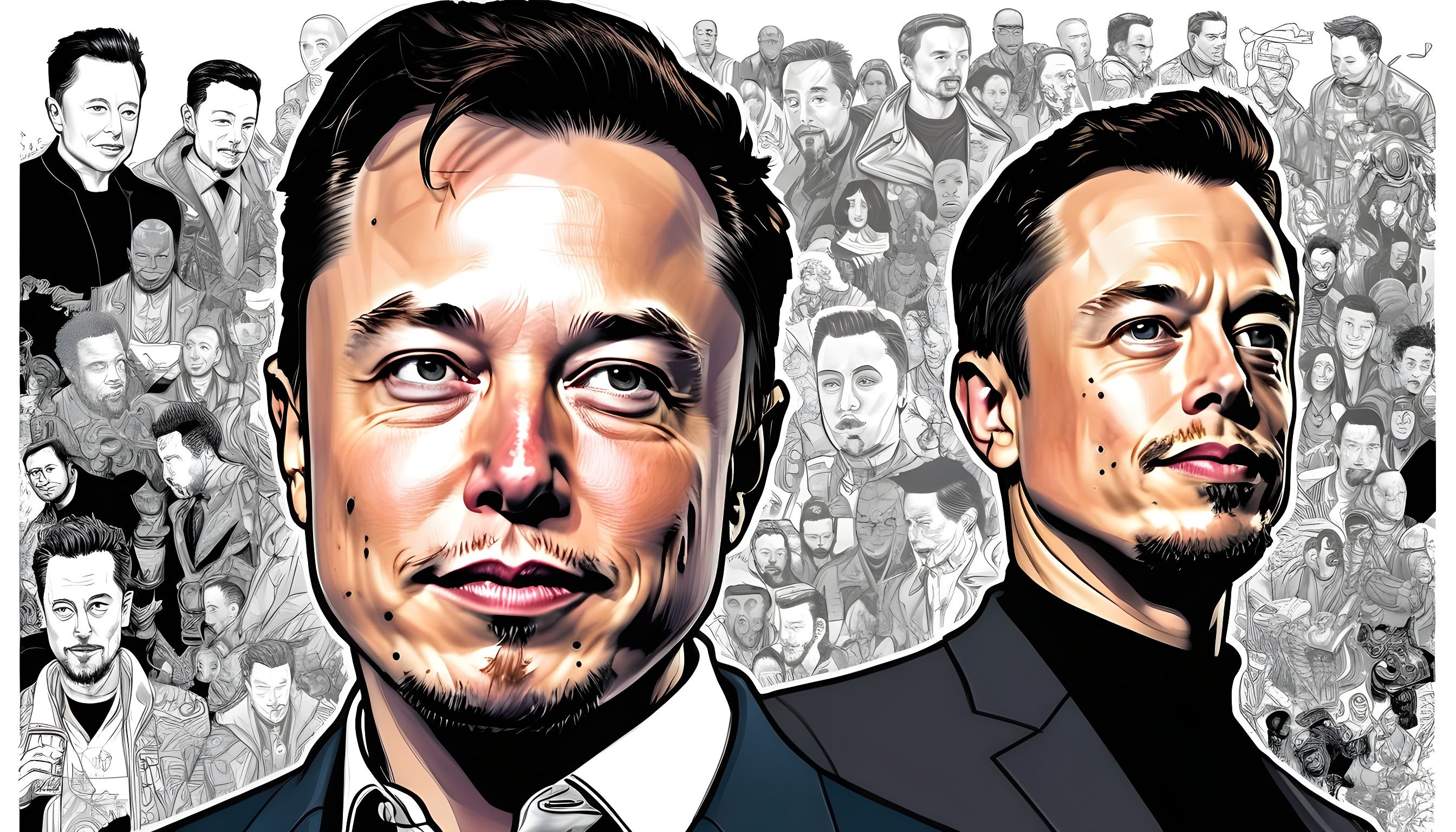Battle of the Bird isn't just about technological innovation or market strategy; it's a tale of rivalry and vision for the future of digital communication platforms. The somewhat eccentric Musk, known for his ventures in space exploration and electric vehicles, took a bold step by acquiring one of the most significant social media platforms, Twitter, now rebranded as "X." On the other side, Jack Dorsey, who is no stranger to eccentricity himself, a co-founder of Twitter and a significant figure in digital payments with Square, has not stayed silent. His responses and actions have added layers to this complex relationship between two tech titans, making it a subject of fascination for many.
In the midst of this social media clash, Kurt Wagner, a seasoned journalist with in-depth knowledge of the tech industry, offers his insights. His new book, "Battle of The Bird," delves into the intricate details of Musk's and Dorsey's visions for the future of what was once Twitter. Wagner recently had an 'AMA' on Reddit (r/technology), shedding light on the nuances of this intriguing battle between two of the most prominent figures in the tech industry today.
Battle of The Bird Platforms: Musk vs Dorsey

The clash between Elon Musk and Jack Dorsey is a tale of two tech titans, each with a distinctive vision for the future of social media. Elon Musk, the CEO of Tesla and SpaceX, entered the social media sphere with his acquisition of Twitter, a platform considered by many as the global town square of the digital age. On the other side of this high-profile rivalry is Jack Dorsey, co-founder and former CEO of Twitter, and a notable figure in the tech world for his contributions to social media and digital payment solutions. The rivalry between Musk and Dorsey escalated as they presented contrasting views on content moderation, platform governance, and the overarching purpose of social media in society. This feud has captivated the tech community, with both individuals advocating for their vision of how digital platforms should operate and serve their user bases.
Their differing philosophies have sparked debates around free speech, misinformation, and the role of algorithms in shaping public discourse. The clash has led to polarized communities within platforms, as users and creators align with the ideologies espoused by each leader. Furthermore, this battle has caught the attention of regulators and policymakers worldwide, putting additional pressure on social media companies to balance innovation with responsibility.
Since Musk's acquisition of Twitter, now rebranded as X, there has been much speculation about the future direction of the platform under his leadership. Comparatively, under Dorsey's tenure, Twitter was known for its emphasis on public conversation and efforts toward healthier discourse, albeit with constant challenges around content moderation and platform abuse. Musk's vision for X has been focused on maximizing free speech, introducing product innovations, and potentially altering the platform's revenue model. These changes hint at a fundamental shift in how X (formerly Twitter) could evolve, diverging from Dorsey's more cautious approach to platform governance.
Kurt Wagner's Insights on the "Conflict"
Kurt Wagner, a senior editor covering social media and the tech industry, has provided comprehensive analysis on the Musk vs. Dorsey feud. His work delves into the complexities of this clash, breaking down the ideological differences and the potential impacts on the future of social media. Wagner’s analysis highlights how this rivalry is not just a personal battle but a reflection of broader debates on technology's role in society, governance, and free speech.
In his book, "Battle of The Bird," Kurt Wagner meticulously outlines the timeline of events that led to the high-stakes confrontation between Musk and Dorsey. He examines key moments such as Musk's announcement of acquiring Twitter, Dorsey's public responses, and the subsequent changes implemented on the platform. The book also discusses the reactions from the tech community, users, and regulators, offering a multi-dimensional view of this significant industry showdown. Wagner paints a vivid picture of how these two leaders' competing visions could shape the future of social media.
During a recent Ask Me Anything (AMA) session, Kurt Wagner shared further insights into the Musk vs. Dorsey saga. He emphasized the unpredictability of social media's future and the potential for these platforms to evolve under different kinds of leadership. Wagner noted that user engagement, platform transparency, and content moderation are critical areas to watch as this conflict unfolds. Additionally, he highlighted the importance of community feedback in shaping platform policies, suggesting that the ultimate direction of social media might well be determined by its users as much as its high-profile CEOs.
Implications of the Conflict

At the heart of this confrontation is not just personal rivalry but a clash of visions regarding the role of social media in society, its governance, and its potential to shape public discourse.
As we delve into the implications of the Musk vs. Dorsey saga, it's crucial to speculate on how their battle might influence the trajectory of social media. Firstly, the emphasis on open-source algorithms, as advocated by Dorsey, could usher in a new era of transparency in content curation and recommendation systems. This would allow users and regulators alike to understand better and, consequently, trust the mechanisms that determine what content surfaces on their feeds.
Secondly, Musk's push for maximizing freedom of speech on platforms might lead to more diverse discourse but also raises concerns around moderation and the spread of misinformation. Accordingly, we might witness the emergence of more robust, AI-driven content moderation tools that strive to balance free expression with the need to curb harmful content.
Finally, this rivalry could catalyze the decentralization of social media, moving away from monolithic platforms to a more distributed ecosystem where users have more control over their data and the content they consume. This could fundamentally alter the social media landscape, making it more user-centric and possibly more fragmented.
This clash between Elon Musk and Jack Dorsey has the potential to lead to several remarkable outcomes that could shape the future of social media. These include:
- Innovation in Platform Features: Competition between the visions of Musk and Dorsey could drive rapid innovation in platform features, improving user experiences, and introducing novel ways to interact online.
- Regulatory Scrutiny: Increased scrutiny from regulators around the world, concerned with issues of privacy, data protection, and the potential for monopolistic behavior. This could result in stricter social media regulations, particularly concerning content moderation and algorithm transparency.
- Shift in User Preferences: Users may become more critical of the platforms they choose to engage with, favoring those that align with their views on information freedom, privacy, and social responsibility. This could affect platforms' user base and growth dynamics significantly.
- Catalyst for New Entrants: The spotlight on the clash between Musk and Dorsey might encourage new entrants into the social media sphere, wielding innovative technologies and governance models to appeal to disenchanted users looking for alternatives.
The articulation of these implications underscores the importance of the battle between Musk and Dorsey, not merely as a personal vendetta but as a pivotal moment with the potential to redefine the future of social media. As their visions clash, the outcome could very well dictate the path that social media platforms will take in addressing the complex balance between freedom of expression, technological innovation, and social responsibility.
At the heart of their disagreements lies a fundamental question about what social media should prioritize: freedom of speech, as Musk champions, or a balanced approach to moderation, as Dorsey advocates. This pivotal debate is shaping not just the future of X, but also influencing the broader discourse on online communication, privacy, and governance.
Through Wagner's expert analysis, it's clear that, regardless of the outcome in this battle of titans, the implications will be far-reaching. We, as users, are witnessing a pivotal moment in digital history—one that will determine not just the trajectory of social media platforms but also the principles upon which they operate.
To summarize, the AMA on Reddit with Kurt Wagner on "The Battle of The Bird" between Elon Musk and Jack Dorsey has illuminated:
- The stark differences in vision between Musk and Dorsey for the future of social media.
- The potential impacts of these differing perspectives on users and the broader digital communication landscape.
- The importance of visionary leadership in guiding the evolution of social media platforms.
The insights provided by experts like Wagner are invaluable in understanding the complex dynamics at play and the potential pathways forward.







